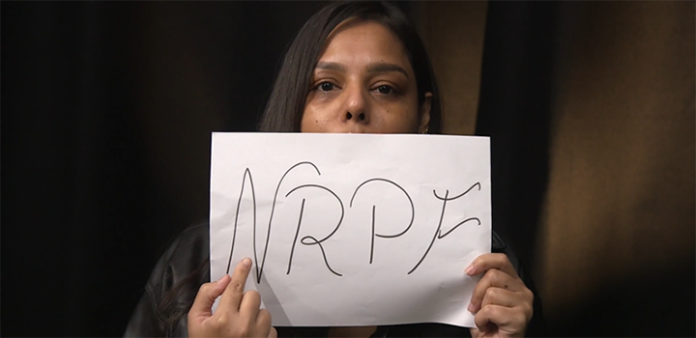Thousands of victims of domestic abuse are “falling through the cracks of the system” without access to legal aid, refuge or financial support, according to a new film from the University of East Anglia (UEA) and Pelikan Pictures.
A new documentary film, Left Behind, tells migrant victims’ and survivors’ stories in their own words, with context from MP Jess Phillips (Shadow Minister for Domestic Abuse and Safeguarding), Nazir Afzal OBE, Nicole Jacobs (Domestic Abuse Commissioner for England and Wales), as well as representatives from charities, including Southall Black Sisters, Latin American Women’s Rights Service and Karma Nirvana. The film advocates a change in government policy to support the victims of domestic violence with No Recourse to Public Funds.
The film premiered at a parliamentary briefing at the House of Lords on June 22, with a keynote address from the Domestic Abuse Commissioner for England and Wales Nicole Jacobs. Representatives from charities and survivors from their support groups were also in attendance.
In April 2021 the UK government introduced the Domestic Abuse Act to ensure that victims of emotional and physical violence are offered vital protection. However, it explicitly denies support to women on non-spousal visas with NRPF and undocumented women, who are not eligible for DVILR and the DDVC.
These women continue to face a stark choice between domestic abuse or deportation and destitution. Many are unable to even enter a women’s refuge as they cannot pay their rent or living costs as they are not eligible for housing or other social security benefits. Women and their children are vulnerable to homelessness and exploitation; and can be locked in new dangerous situations or be driven back to abusive relationships.
The UK government ratified the Istanbul Convention on Preventing and Combating Violence against Women and Domestic Violence in 2022. However, it reserved the right not to comply with Article 59, which requires countries to grant residence to survivors whose immigration status depends on an abusive partner.
Working with parliamentarians and civil servants, frontline workers, charities and activists, UEA’s Prof Eylem Atakav and filmmaker Karoline Pelikan have created the short documentary highlighting the stories of victims and survivors.
Eylem Atakav said: “For migrants with no recourse to public funds who are experiencing domestic abuse, the consequences are dire particularly if they are not on spousal visas.
“This film acts as visual evidence to call the government to action so that they drop no recourse to public funds condition for migrant victims of domestic abuse.”
Karoline Pelikan said: “It is important to understand the alarming ease with which women can become trapped in these harrowing situations. It is a reality that can affect anyone, regardless of their background.
“What is truly disheartening is that when these women gather the courage to seek help, they often encounter closed doors due to the NRPF condition. This further victimises them at the hands of the state.
“In our film, we aim to shed light on this distressing issue to advocate for a change in the government’s cruel policy.”
Left Behind features migrant survivors who have suffered additionally because of the NRPF stipulation. Additionally, the film showcases the campaigns and the frontline work of national charities, and the experiences of changemakers at political, legal and policy levels.
Jess Phillips said: “Fundamentally, the Domestic Abuse Act as it now stands is discriminatory. It does nothing to help a migrant victim of domestic violence. Before they ask her how we can offer help, they ask her what stamp they have on her passport. This cannot be right.”







